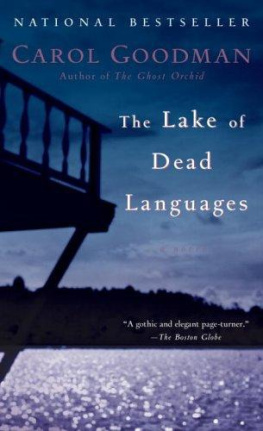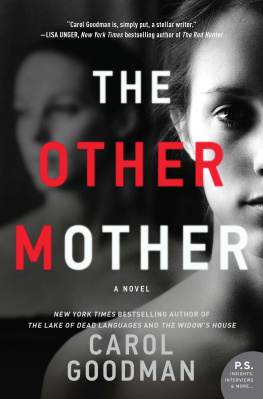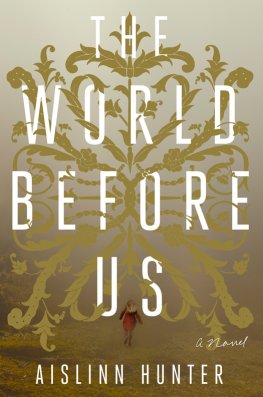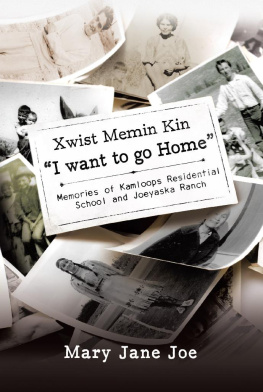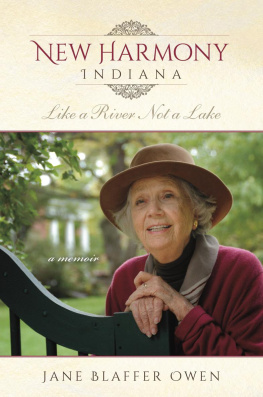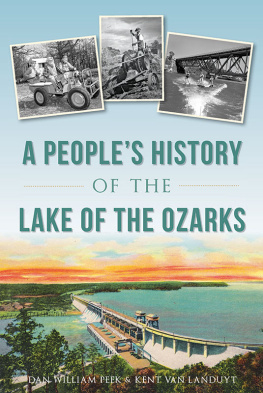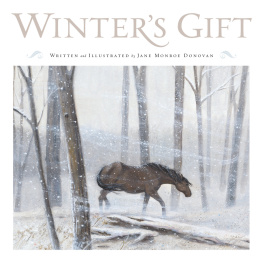Acknowledgments
I would like to thank the early readers of this book whose support and encouragement were invaluable: Laurie Bower, Gary Feinberg, Wendy Gold Rossi, Scott Silverman, Nora Slonimsky, Mindy Siegel Ohringer, and Sondra Browning Witt.
To my teachers whose vision and advice guided me, Sheila Kohler and Richard Aellen.
For a work of fiction, I had a lot of factual questions. Thanks to Ann Guenther, Mohonk naturalist, who told me how lakes freeze, and to Joan LaChance, Marion Swindon, and Jim Clark for talking to me about ice harvesting at
Mohonk. To my brother, Robert Goodman, for answering questions about the physics of freezing, and my daughter, Maggie, who invented the corniculum.
Thanks to Loretta Barrett, my agent, and her assistant, Alison Brooks, for taking a chance on me and steering the book toward its present incarnation.
For Linda Marrow--I couldn't have dreamed up a better editor.
Most of all, thanks to my husband, Lee Slonimsky, whose love and wild, improbable faith made all the difference. I wouldn't have written this book without you.
By Carol Goodman
THE DROWNING TREE
THE LAKE OF DEAD LANGUAGES
THE SEDUCTION OF WATER
The Lake of Dead Languages is a work of fiction. Names, characters, places, and incidents are products of the author's imagination or are used fictitiously. Any resemblance to actual events, locales, or persons, living or dead, is entirely coincidental.
January 2006 Ballantine Books Mass Market Edition
Copyright (c) 2002 by Carol Goodman
Excerpt from The Ghost Orchid copyright (c) 2006 by Carol Goodman
All rights reserved.
Published in the United States by Ballantine Books, an imprint of The Random House Publishing Group, a division of Random House, Inc., New York.
B ALLANTINE and colophon are trademarks of Random House, Inc.
Originally published in hardcover in the United States by Ballantine Books, an imprint of The Random House Publishing Group, a division of Random House, Inc., in 2002.
This book contains an excerpt from the forthcoming hardcover edition of The Ghost Orchid by Carol Goodman. This excerpt has been set for this edition only and may not reflect the final content of the forthcoming edition.
eISBN 0-345-49091-6
www.ballantinebooks.com
v1.0
To my mother, Margaret Goodman,
and in memory of my father,
Walter Goodman
1924-1999
T HE LAKE IN MY DREAMS IS ALWAYS FROZEN. I T IS NEVER THE lake in summer, its water stained black by the shadows of pine trees, or the lake in fall, its surface stitched into a quilt of red and gold, or the lake on a spring night, beaded with moonlight. The lake in my dreams reflects nothing; it is the dead white of a closed door, sealed by ice that reaches sixty feet down to the lake's glacial limestone cradle.
I skate over that reassuring depth soundlessly, the scrape of my blades absorbed by a pillowy gray sky. I feel the strength of the deep ice in the soles of my feet and I skate like I've never skated in life. No wobbly ankles or sore thighs, I skate with the ease and freedom of flying. I skate the way skating looks, not feels.
I lean into long, languid figure eights and arch my back in the tight spins, my long hair shedding sparks of static in the cold dry air. When I leap, I soar high above the silver ice and land straight and true as an arrow boring into its mark. Each glide is long and perfect and crosses over the last, braiding tendrils of ice and air out of the spray which fans out in my wake.
Then comes the moment when I am afraid to look down, afraid of what I'll see beneath the surface of the ice, but when I do look, the ice is as thick and opaque as good linen and my heart beats easier. I am weightless with relief. I pirouette as effortlessly as a leaf spinning in the wind, the fine lines my blades inscribe in the ice as delicate as calligraphy. It is only when I reach the shore and look back that I see I have carved a pattern in the ice, a face, familiar and long gone, which I watch, once again, sink into the black water.
PART ONE
Overturn
Chapter One
I HAVE BEEN TOLD TO MAKE THE L ATIN CURRICULUM RELEVANT to the lives of my students. I am finding, though, that my advanced girls at Heart Lake like Latin precisely because it has no relevance to their lives. They like nothing better than a new, difficult declension to memorize. They write the noun endings on their palms in blue ballpoint ink and chant the declensions, "Puella, puellae, puellae, puellam, puella..." like novices counting their rosaries.
When it comes time for a test they line up at the washroom to scrub down. I lean against the cool tile wall watching them as the washbasins fill with pale blue foam and the archaic words run down the drains. When they offer to show me the undersides of their wrists for traces of letters I am unsure if I should look. If I look, am I showing that I don't trust them? If I don't look, will they think I am naive? When they put their upturned hands in mine--so light-boned and delicate--it is as if a fledgling has alighted in my lap. I am afraid to move.
In class I see only the tops of their hands--the black nail polish and silver skull rings. One girl even has a tattoo on the top of her right hand--an intricate blue pattern that she tells me is a Celtic knot. Now I look at the warm, pink flesh--their fingertips are tender and whorled from immersion in water, the scent of soap rises like incense. Three of the girls have scratched the inside of their wrists with pins or razors. The lines are fainter than the lifelines that crease their palms. I want to trace their scars with my fingertips and ask them why, but instead I squeeze their hands and tell them to go on into class. "Bona fortuna," I say. "Good luck on the test."
When I first came back to Heart Lake I was surprised at the new girls, but I soon realized that since my own time here the school has become a sort of last resort for a certain kind of girl. I have learned that even though the Heart Lake School for Girls still looks like a prestigious boarding school, it is not. It is really a place for girls who have already been kicked out of two or three of the really good schools. A place for girls whose parents have grown sick of drama, sick of blood on the bathroom floor, sick of the policeman at the door.
Athena (her real name is Ellen Craven, but I have come to think of the girls by the classical names they've chosen for class) is the last to finish washing. She has asked for extra credit, for more declensions and verb conjugations to learn, so she is up to her elbows in blue ink. She holds out her forearms for me to see and there is no way to avoid looking at the scar on her right arm that starts at the base of her palm and snakes up to the crook of her elbow. She sees me wince.
Athena shrugs. "It was a stupid thing to do," she says. "I was all messed up over this boy last year, you know?"
I try to remember caring that much for a boy--I almost see a face--but it's like trying to remember labor pains, you remember the symptoms of pain--the blurred vision, the way your mind moves in an ever-tightening circle around a nucleus so dense gravity itself seems to bend toward it--but not the pain itself.
"That's why my aunt sent me to an all girls school," Athena continues. "So I wouldn't get so caught up with boys again. Like my mother goes to this place upstate when she needs to dry out--you know, get away from booze and pills? So, I'm here drying out from boys."
I look up from her hands to her pale face--a paleness accentuated by her hair, which is dyed a blue-black that matches the circles under her eyes. I think I hear tears in her voice, but instead she is laughing. Before I can help myself I laugh, too. Then I turn away from her and yank paper towels from the dispenser so she can dry her arms.
Next page
